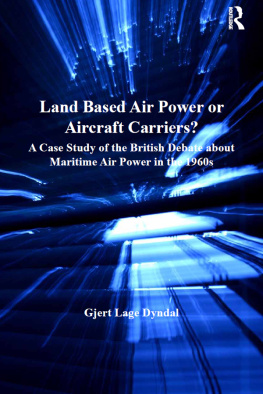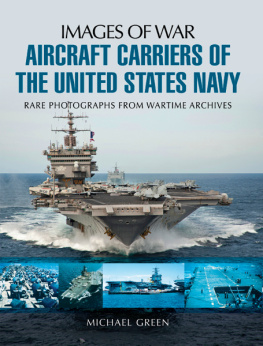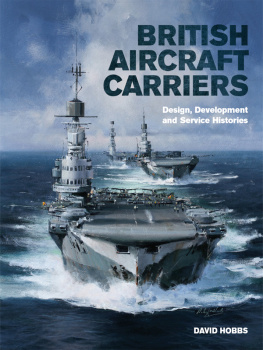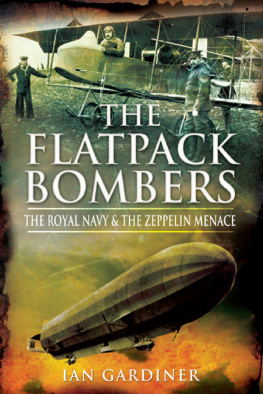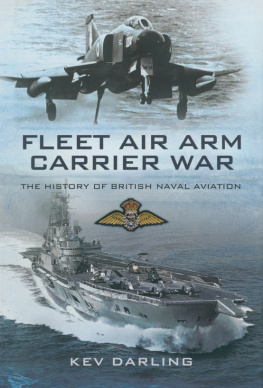LAND BASED AIR POWER OR AIRCRAFT CARRIERS?
Corbett Centre for Maritime Policy Studies Series
Series editors:
Professor Greg Kennedy, Dr Tim Benbow and Dr Jon Robb-Webb,
Defence Studies Department, Joint Services Command and Staff College, UK
The Corbett Centre for Maritime Policy Studies Series is the publishing platform of the Corbett Centre. Drawing on the expertise and wider networks of the Defence Studies Department of Kings College London, and based at the Joint Services Command and Staff College in the UK Defence Academy, the Corbett Centre is already a leading centre for academic expertise and education in maritime and naval studies. It enjoys close links with several other institutions, both academic and governmental, that have an interest in maritime matters, including the Developments, Concepts and Doctrine Centre (DCDC), the Naval Staff of the Ministry of Defence and the Naval Historical Branch.
The centre and its publishing output aims to promote the understanding and analysis of maritime history and policy and to provide a forum for the interaction of academics, policy-makers and practitioners. Books published under the eagis of the Corbett Centre series reflect these aims and provide an opportunity to stimulate research and debate into a broad range of maritime related themes. The core subject matter for the series is maritime strategy and policy, conceived broadly to include theory, history and practice, military and civil, historical and contemporary, British and international aspects.
As a result this series offers a unique opportunity to examine key issues such as maritime security, the future of naval power, and the commercial uses of the sea, from an exceptionally broad chronological, geographical and thematic range. Truly interdisciplinary in its approach, the series welcomes books from across the humanities, social sciences and professional worlds, providing an unrivalled opportunity for authors and readers to enhance the national and international visibility of maritime affairs, and provide a forum for policy debate and analysis.
Land Based Air Power or Aircraft Carriers?
A Case Study of the British Debate about
Maritime Air Power in the 1960s
GJERT LAGE DYNDAL
Royal Norwegian Airforce Academy, Norway
First published 2012 by Ashgate Publishing
Published 2016 by Routledge
2 Park Square, Milton Park, Abingdon, Oxon OX14 4RN
711 Third Avenue, New York, NY 10017, USA
Routledge is an imprint of the Taylor & Francis Group, an informa business
Copyright Gjert Lage Dyndal 2012
Gjert Lage Dyndal has asserted his right under the Copyright, Designs and Patents Act, 1988, to be identified as the author of this work.
All rights reserved. No part of this book may be reprinted or reproduced or utilised in any form or by any electronic, mechanical, or other means, now known or hereafter invented, including photocopying and recording, or in any information storage or retrieval system, without permission in writing from the publishers.
Notices:
Product or corporate names may be trademarks or registered trademarks, and are used only for identification and explanation without intent to infringe.
British Library Cataloguing in Publication Data
Dyndal, Gjert Lage.
Land based air power or aircraft carriers? : a case study of the British debate about maritime air power in the 1960s. (Corbett Centre for Maritime Policy Studies series)
1. Aeronautics, MilitaryGreat BritainHistory20th century. 2. Aircraft carriersGovernment policyGreat BritainHistory20th century. 3. Great Britain. Admiralty. 4. Great Britain. Air Ministry. 5. Interservice rivalry (Armed Forces)Great BritainHistory20th century. 6. Great BritainForeign relations1945-1964. 7. Great BritainForeign relations1964-1979. 8. Great BritainMilitary policyHistory20th century.
I. Title II. Series
358.403094109046-dc23
Library of Congress Cataloging-in-Publication Data
Dyndal, Gjert Lage.
Land based air power or aircraft carriers? : a case study of the British debate about maritime air power in the 1960s / Gjert Lage Dyndal.
p. cm. (Corbett centre for maritime policy studies series)
Includes bibliographical references and index.
ISBN 978-1-4094-3335-4 (hbk.)
1. Air powerGreat BritainHistory20th century. 2. Great Britain. Royal Air ForceHistory20th century. 3. Aircraft carriersGreat BritainHistory20th century. 4. Great Britain. Royal NavyAviationHistory20th century. 5. Great BritainMilitary policyHistory20th century.
I. Title.
UG635.G7D96 2012
359.94dc23
2011041165
ISBN 9781409433354 (hbk)
Contents
List of Figures
Preface
Professor Geoffrey Till
Plus a change, plus cest la mme chose the more things change, the more they stay the same. This just has to be the reaction of anyone studying the complex relationship between the Royal Navy and the Royal Air Force over the years. This book focuses on the 1960s at the time of the grand battle between the two over the Royal Navys carrier programme. This contest, as we shall see, ended with the cancellation of the CVA-01, Admiralty despair, but paradoxically with the defeat of the Air Ministry too. But this is a story that can be projected both backwards and forwards as well.
The language and the concepts of the 1960s seem in many respects almost identical to those bandied around between the two British services in the great Battleship versus Bomber debates of the interwar period and in particular the institutional struggle between the two over the ownership and development of the Fleet Air Arm.
On the surface, though, the dispute was exemplified by two alternative sets of assumptions about what air power was for, and how it could best be implemented. These ideas inevitably reflected the context of the time and were shaped by such considerations as the health of the national economy and on the kind of defence policy that Britain should have first and most obviously on the balances it should strike first between the European theatre and the rest of the world and second on that between hot war and peacetime roles.
At the time the emerging air power theory associated with Italys Giulio Douhet, Americas General Billy Mitchell and to a certain extent Air Marshal Sir Hugh Trenchard was that bombing could become a decisive, arguably, the decisive form of war and one that was likely to be so effective as significantly to reduce the effect of, and, logically, the need for, the kind of operations for which armies and navies were designed. A full-scale aerial onslaught against an adversarys capital city, for example, would prove so devastating as to bring about an end to the war before navies and armies had had a chance to affect its outcome. Developing this capability, and the corresponding fighter defences against the enemys anticipated bomber campaign accordingly must be the nations highest defence priority, to which everything else (that is the direct support of the Army and the Navy) was subordinate. These were the strategic tasks that guaranteed the independence of the Royal Air Force; without them, there seemed a grave risk that the service would be reintegrated into the Army and the Navy.
The airmen thought this would be a backwards step because neither of the other services could be expected to develop the kind of overall air experience and air knowledge that professional full-time aviators would; instead they would necessarily focus merely on air support of the land and sea campaigns. The Air Staff justified their position with the observation that, if the country lost either the strategic bombing campaign or the battle for command of the air, it would not much matter what the Army and Navy did. Strategic Bombing and Air Defence were the nations strategic necessities, and had to take precedence over everything else.

